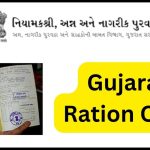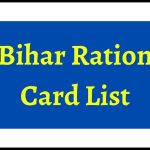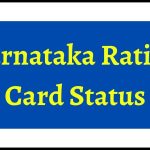Are you writing a resume? Wait, confused about the ‘Soft Skill’? So what are these soft skills which every employer looks for in a candidate?
Soft skill comprises different combinations of interpersonal traits that tells your employer how you behave and perform in a workplace, how you interact with your colleagues, how you manage your work, and how you tackle problems.

What are soft skills?
Some of the most common examples of soft skills are:
- Communication Skills
- Time Management
- Teamwork
- Leadership
- Attention to Detail
- Work Ethics
Soft skills are usually qualities that a candidate already has as compared to the technical skills which a candidate learns.
If you are applying for a job, these skills become a major key to set you apart from the rest, especially where candidates are from the same background but How?
Let’s put it this way
If an employer has a choice between:
- A highly-skilled person who is good at communication has leadership qualities and perfect time management skills.
- An equally skilled and qualified person minus the soft skills.
Guess which candidate will be hired. See the difference now?
Soft skills play a major role in the success of a company which will ultimately become your success. The truth is you can teach a person about a new device or software but you can’t teach them character polishing skills.
Soft skills Vs Hard skills
Basically, there are two types of skills: hard skills and soft skills.
So what is the difference between these two?
Hard skills are quantitative in nature. They are also referred to as measurable abilities. One can acquire these skills through education, training and professional experience.
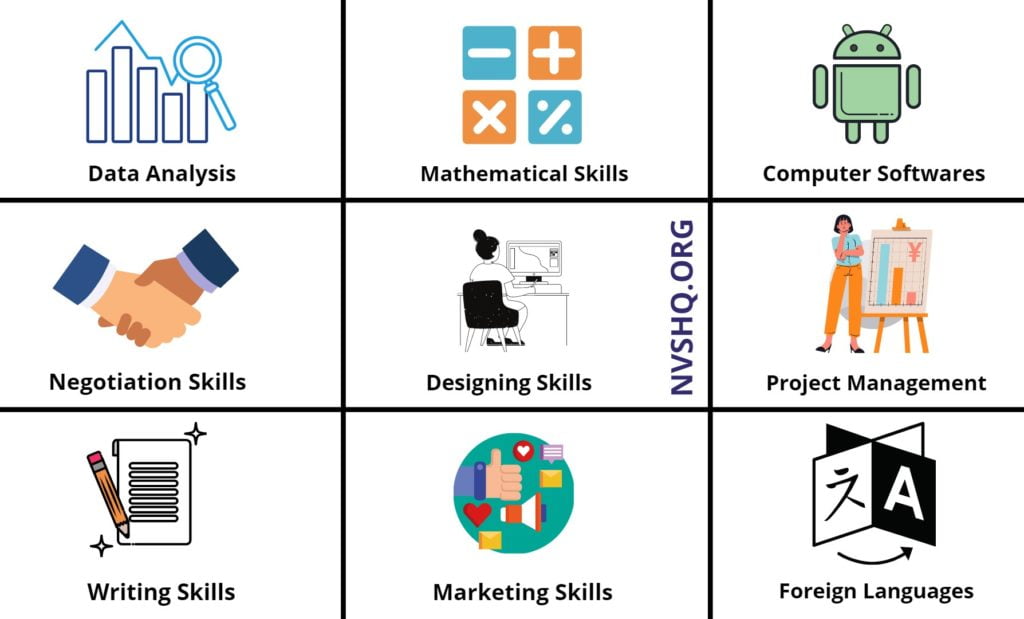
Soft skills are qualitative in nature. They are a mix of interpersonal traits and character that a job requires. One cannot learn these skills at the institutional level but can be obtained through experiences.
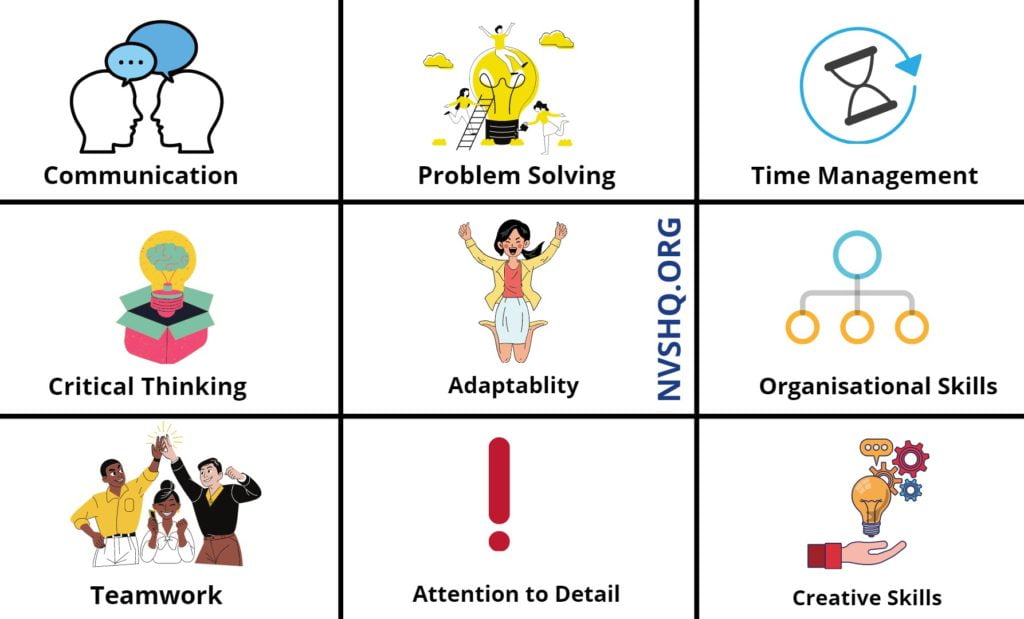
Usually, one good resume includes a good combination of both hard as well as soft skills as follows:
TECHNICAL SKILLS
- HTML and CSS
- C++
- Python
- JavaScript
SOFT SKILLS
- Teamwork
- Flexibility
- Leadership
- Time Management
The hard skills are usually easy to observe and measure and thus easy to train and acquire. However, soft skills are traits that a person has acquired since childhood, the behaviour of a person determines the soft skill. One can not infuse these skills through training but whatever the person has adapted throughout his or her life is the outcome.
SOFT SKILLS AN EMPLOYER LOOKS FOR
In more recent times the most demanding soft skills are as follows:
- Time management
- Communication skills
- Work ethics
- Teamwork
- Interpersonal skills
- Adaptability
- Problem-solving
- Creativity
- Attention to details
- Leadership
Time management skills
Time management includes your ability to use your time wisely and meet deadlines. Some subsets are as follows:
- Goal setting
- Meeting deadlines
- Multitasking
- Resource management
- Scheduling
Communication skills
It includes your ability to convey your ideas and feelings in a lucid way. It is among the top skills every employer looks for across any employer. They value effectively communicating with people.
- Active listening
- Body language
- Negotiating
- Openness
- Storytelling
- Presenting
- Written communication skills
- Public speaking
Work ethics skills
Every employee across the globe looks for this skill for any position. Work ethics includes valuing your work and putting in your efforts for results.
- Responsibility
- Discipline
- Initiative
- Dependability
- Commitment
- Self-motivated
- Professionalism
- Teamwork
- Time-management
Teamwork skills
Another most demanding skill in a resume. It helps you to work in a team or a group very effectively. Teamwork with other skills makes you a pro player in the game and you are already ahead of your game.
- Conflict resolution
- Planning skills
- Tolerance
- Problem-solving
- Respectfulness
- Influencing
- Decision making
- Communication
Interpersonal skills
Interpersonal skills are all about how well you interact with others, tend to relationships, and have a good impression on others.
- Ability to work under pressure
- Adaptability
- Communication
- Conflict resolution
- Creativity
- Decision making
- Emotional intelligence
- Patience
- Problem-solving
- Relationship building
- Responsibility
- Self-motivation
- Teamwork/Collaboration
Adaptability
Your adaptability shows how well you adjust and adapt to change. The work environment always tends to change so you should be able to adapt fast and embrace it.
- Curiosity
- Self-management
- Decision-making
- Calmness
- Optimism
- Open-mindedness
- Analysis
- Self-confidence
- Resilience
- Self-motivation
Problem-solving
Solving problems in a creative and analytical way comes in handy all the time. Types of problem-solving skills include:
- Analysis
- Lateral thinking
- Logical reasoning
- Initiative
- Persistence
- Observation
- Persuasion
- Negotiation
- Brainstorming
- Decision making
- Research
Creativity
Creativity does not confine to art or design but to all professions. As any position can make use of a creative mind. Types of creative skills include:
- Active listening
- Artistic design
- Brainstorming
- Communication
- Creative writing
- Open-mindedness
- Problem-solving
Attention to details
Another skill that is in demand is the attention given to small details. Paying attention to small details highlights an employee from the rest. Some soft skills related to attention to detail are:
- Critical observation
- Active listening
- Organization
- Scheduling
- Analysis
- Introspection
- Memory
- Acuity
- Recall
- Questioning
Leadership
Leadership quality refers to the ability to direct, mentor or guide someone or a team. The most sorted skill an employer looks for is this one no matter which industry you work for. Some other skills connected to leadership include:-
- Project management
- Empathy
- Selflessness
- Encouragement
- Management skills
- Authenticity
- Versatility
- Team building
- Generosity
- Trustworthiness
- Mentorship
HOW CAN ONE DEVELOP SOFT SKILLS?
- The first step in developing good these skills is to unlearn the negative traits developed and learn. Always be open to feedback from your colleagues or supervisor. When you are open to feedback you will be able to receive constructive criticism and can use this for your benefit to improve your skills. For example, one can receive feedback about your lack of communication skills or missing deadlines so try to improve your skills and always consider thanking the person.
- Developing a healthy relationship with your colleagues will not only improve your social circle but put you in the limelight. Communication can be face-to-face or digital. And while communicating with others always tend to address others in a proper dignified way. Watch over your tone and how clear your message is. You can also notice how others are communicating with you and take advice from them if they are best at this skill.
- Always be a good leader. A good leader always tends to inspire his or her teammates. Think about how you can be a good leader and how you can inspire others. Never leave an opportunity to lead a team. Ask your seniors to give you this role, to lead a project or to mentor or tutor someone with less experience.
- Always be flexible to learn new things. This is the key to continuously improving your skills throughout your professional career. Get out of your comfort zone and try something new every time. Take new responsibilities or a leadership position where you can experience something new.
- Lastly, time management is the key to success. Completing given tasks on time and staying organised will definitely put you ahead in the game.
IMPORTANCE OF SOFT SKILLS
Soft skills are a vital and absolutely necessary part of every individual. Lacking these can hinder your growth in any aspect of your life. Soft skills improve your ability to work with others and prove to be a positive response in your career. Soft skills are something which software or an AI can’t replicate so the more you work on your soft skills the better opportunity you get.
When you work on your soft skills you develop a good and healthy relationship with your colleagues also. This not only puts a positive image of yours but also helps you when you search for a new position.
Developing your soft skills by yourself easily separates you from the rest of the crowd. The less the company puts on you the more likely you are to get the job.
HOW TO LIST SOFT SKILLS ON A RESUME?
- Now that we have discussed what soft skills are and their importance. It’s time to see where to put up these skills in your resume to get your dream job.
- Try to identify what the employer is seeking, and which quality they are looking for. For example, a position in HR will look for skills like attention to detail.
- Try to sort out the skills that a particular position requires. Once you have sorted it out try to make a list of it and see if they match your skills this is how you can see if you are fit for that job or not.
- Always remember to focus on the ones you are good at. Try to use your skills in your experience section too. For example, a person can point out his or her leadership qualities by mentioning how many projects they have headed or many interns they have guided.
- Never be shy to show off your skill. Put them at the top of your resume so that your resume is highlighted in front of all. In a recent study, it was seen that people with soft skills are given more preference over others. Your skills are your power weapon, use them but remember to mention those skills which you actually have otherwise it can lead you into trouble.
- Writing a cover letter using your soft skills can improve your chances among others.
Faqs
What are soft skills and how are they essential for a person?
Soft skills consist of a combination of interpersonal traits and qualities which a person acquires throughout a lifetime. They can’t be learned in any institution. They play an important role in setting you apart from others who have the same hard skills.
Can soft skills be acquired?
They are non-technical skills and more of a qualitative thing rather than quantitative. Social skills, time management, and leadership are something which cannot be taught in a class. One can pick a few skills but it will take great efforts from your end to fully incorporate them into your lifestyle.
What is the difference between soft skills and hard skills?
Yes, hard skills cover your education, training, or certification which you acquire from an institution while soft skills, on the other hand, are a personality trait. Hard skills are measurable while soft skills are more qualitative.
How many soft skills should one put down in a resume?
The answer is as simple as you want unless you are not exaggerating things. Stick to those skills which you believe you have naturally.




